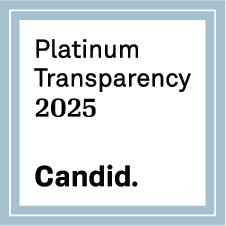捐赠者权利法案 (Donor Bill of Rights)
卓登 (Dzokden) 已采纳由 Association of Fundraising Professionals (AFP)、Association for Healthcare Philanthropy (AHP)、Council for Advancement and Support of Education (CASE)以及 Giving Institute 所共同拟定的捐赠者权利法案。
捐赠者权利法案内容
慈善事业是建基于为公众福祉而进行的自愿行动。这是一种施予和分享的传统,对生活质素至为重要。为确保慈善事业赢得公众的尊重和信任,并使捐赠者和准捐赠者能对他们被邀请支持的非牟利机构和项目充满信心,我们宣布所有捐赠者拥有以下权利:
- 了解机构的使命、机构如何运用捐赠资源,以及机构有效运用捐赠实现预期目的的能力。
- 了解机构董事会成员的身份,并期望董事会在履行管理职责时谨慎行事。
- 获取机构最新的财务报表。
- 确保捐赠将用于捐赠时指定的目的。
- 获得适当的鸣谢和确认。
- 确保与捐赠相关的资料在法律容许的范围内得到尊重和保密处理。
- 期望与捐赠者感兴趣机构的代表人士,其所有关系都具有专业性质。
- 知道寻求捐赠的人是义工、机构员工,还是受聘募捐人员。
- 可以选择从机构可能打算分享的邮寄名单中删除其姓名。
- 在捐赠时自由提问,并获得及时、真实和坦率的回复。
电子捐赠者权利法案 (Read the E-Donor Bill of Rights)
自捐赠者权利法案创立以来,慈善事业格局已发生重大转变。 一个关键转变是科技的广泛应用促进了慈善捐赠,主要是透过互联网进行。 尽管互联网作为慈善捐赠工具具有巨大潜力,但它亦为捐赠者和慈善机构带来了新的挑战。 由于互联网是一种新兴的捐赠媒介,最佳实际使用才刚刚开始确立,许多捐赠者和慈善机构对他们的网上权利和责任尚不确定。
电子捐赠者权利法案旨在补充原有捐赠者权利法案,并为网络捐赠世界提供更进一步的详细指引。 除了捐赠者权利法案中概述的权利外,网上捐赠者应要求其网上募捐者做到以下几点:
- 在首次浏览机构网站时,清晰且立即可以了解机构的名称、身份、非牟利或牟利性质、使命和宗旨。
- 能够轻易及清晰地获取除网站或电邮之外的其他联络方式。
- 确保网站上所显示的第三方标志、商标、信任标志和其他识别、赞助及/或认可符号皆为准确、合理、最新并得到清晰解释。
- 了解捐赠者能否因该捐款而有资格获得税务减免,以及基于有关法律的所有此类减免限制。
- 确保所有网上交易和捐款均通过安全、私隐的系统进行,以保障捐赠者的个人资料。
- 清楚了解捐款是直接存入预期的慈善机构,还是由第三方持有或转账。
- 能够轻易及清晰地浏览发布在机构网站上的私隐政策,并清楚及明确地了解机构正在收集关于捐赠者的哪些数据以及如何运用这些数据。
- 清楚了解选择退出数据列表的出售、共享、出租或转让给其他机构的机会。
- 不接收未经要求的通讯或招揽,除非捐赠者已选择接受此类数据。
来源:The Association of Fundraising Professionals
“This is a Chinese translation of the original English text. In case of any discrepancy between the Chinese and English versions, the English version shall prevail.”
(本中文版本依据英文原文翻译,如有歧义,概以英文原文为准
